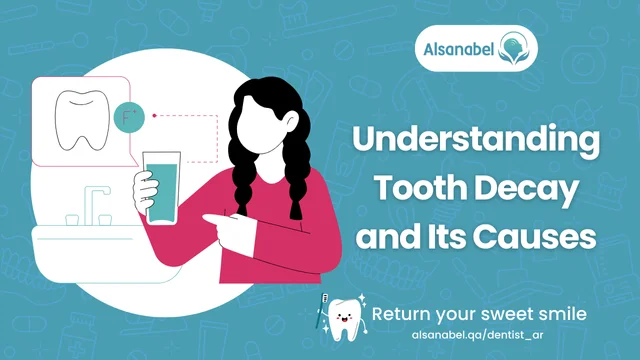
Tooth decay is one of the most prevalent dental problems worldwide, affecting people of all ages. The deterioration of tooth structure due to bacterial activity can lead to painful cavities, infections, and even tooth loss if left untreated. Proper oral hygiene and preventative measures can significantly reduce the risk of dental issues and contribute to long-term oral health.
Understanding the best strategies for tooth decay prevention is essential for maintaining strong teeth and a beautiful smile. Preventative dental care not only saves time and money on treatments but also protects against discomfort and potential complications. By following simple yet effective steps, individuals can actively contribute to Preventing cavities and maintaining optimal oral health.
This article explores the primary causes of tooth decay, effective prevention techniques, the role of fluoride, dietary influences, and whether early-stage decay can be reversed.
Understanding Tooth Decay and Its Causes
Tooth decay occurs when harmful bacteria in the mouth produce acids that break down the enamel, leading to cavities. This process is primarily driven by poor oral hygiene, diet, and lifestyle habits.

Common Causes of Tooth Decay
Several factors contribute to the development of cavities, including:
- Poor oral hygiene – Infrequent or improper brushing and flossing lead to plaque buildup, allowing bacteria to thrive.
- Sugary and acidic foods – Consuming excessive amounts of sugary snacks, sodas, and acidic foods weakens enamel and promotes bacterial growth.
- Lack of fluoride – Fluoride strengthens enamel and helps prevent decay. Inadequate fluoride exposure increases the risk of cavities.
- Dry mouth – Saliva plays a crucial role in washing away food particles and neutralizing acids. Reduced saliva flow increases cavity risk.
- Frequent snacking – Eating multiple times throughout the day exposes teeth to continuous acid attacks, weakening enamel over time.
- Genetics – Some people are naturally more prone to cavities due to genetic factors, such as enamel strength and saliva composition.
By addressing these causes, individuals can take proactive steps toward dental caries prevention and ensure long-term oral health.
Essential Tips for Preventing Cavities
Maintaining strong teeth requires a combination of good oral hygiene, a balanced diet, and professional dental care. The following strategies can help in Preventing cavities effectively.
1. Brush and Floss Properly
- Brush teeth at least twice daily using fluoride toothpaste.
- Use a soft-bristled toothbrush to avoid damaging enamel and gums.
- Floss once a day to remove plaque between teeth and prevent bacterial buildup.
- Replace toothbrushes every three months or sooner if the bristles appear frayed.
2. Use Fluoride for Stronger Enamel
- Choose toothpaste and mouthwash containing fluoride, as it helps repair early decay.
- Consider professional fluoride treatments at the dentist for added protection.
- Drink fluoridated water, as it contributes to long-term tooth protection.
3. Limit Sugary and Acidic Foods
- Reduce the intake of sugary snacks, sodas, and fruit juices, which contribute to decay.
- Choose nutrient-rich foods such as dairy, leafy greens, and lean proteins for stronger teeth.
- Rinse with water after consuming acidic foods to neutralize their effect on enamel.
4. Stay Hydrated to Maintain Saliva Flow
- Drink plenty of water throughout the day to support saliva production.
- Chew sugar-free gum to stimulate saliva and wash away bacteria.
- Avoid excessive consumption of alcohol and caffeine, as they contribute to dry mouth.
5. Visit Your Dentist Regularly
- Schedule dental check-ups every six months for professional cleanings and exams.
- Detect early signs of decay with routine x-rays and preventative treatments.
- Discuss personalized prevention strategies based on individual dental needs.
The Role of Fluoride in Tooth Decay Prevention
Fluoride plays a significant role in dental caries prevention by strengthening enamel and reversing early signs of decay. It works by remineralizing tooth surfaces and making them more resistant to acid attacks.
How to Incorporate Fluoride into Oral Care
- Use fluoride toothpaste and mouthwash as part of a daily oral hygiene routine.
- Consider professional fluoride treatments at the dentist, especially for those at higher risk of decay.
- Drink fluoridated water, which is one of the most effective ways to reduce cavity formation on a population level.
Fluoride is particularly beneficial for children, as it helps develop strong teeth from an early age, reducing the risk of decay later in life.
Diet and Its Impact on Tooth Protection
Dietary choices have a direct effect on tooth protection and cavity prevention. The types of foods consumed can either strengthen enamel or contribute to decay.
Foods That Promote Oral Health
- Dairy products (milk, cheese, yogurt) provide calcium and phosphates that strengthen teeth.
- Leafy greens (spinach, kale) contain essential vitamins that support gum and tooth health.
- Crunchy fruits and vegetables (apples, carrots, celery) help clean teeth and stimulate saliva flow.
- Green tea contains antioxidants that fight bacteria and reduce inflammation in the mouth.
Foods That Lead to Tooth Decay
- Sugary snacks such as candies, cookies, and cakes encourage bacterial growth.
- Acidic beverages like soda and citrus juices weaken enamel over time.
- Sticky foods like dried fruit cling to teeth and create an ideal environment for bacteria.
By making mindful dietary choices, individuals can effectively reduce their risk of cavities and improve overall oral health.
Can Tooth Decay Be Reversed?
In its early stages, tooth decay can be reversed through remineralization. This process involves restoring lost minerals to the enamel before cavities form.
How to Reverse Early-Stage Decay
- Increase fluoride exposure through toothpaste, mouthwash, and professional treatments.
- Maintain proper oral hygiene to remove plaque before it hardens into tartar.
- Adopt a tooth-friendly diet that includes calcium, vitamin D, and phosphorus.
However, once decay progresses beyond the enamel, professional dental intervention becomes necessary. Fillings, crowns, or root canals may be required to restore damaged teeth.
Frequently Asked Questions

1. What Causes Tooth Decay?
Tooth decay is caused by plaque buildup, bacteria, sugary foods, poor oral hygiene, and a lack of fluoride. When acids produced by bacteria attack the enamel, cavities begin to form.
2. How to Prevent Cavities?
Cavities can be prevented by brushing and flossing daily, using fluoride, eating a balanced diet, and visiting the dentist regularly for check-ups and professional cleanings.
3. Are Fluoride Treatments Effective?
Yes, fluoride treatments strengthen enamel, help reverse early-stage decay, and protect against cavity formation. They are especially beneficial for children and individuals at high risk for cavities.
4. What Foods Lead to Tooth Decay?
Sugary and acidic foods, including soda, candy, fruit juices, and sticky snacks, contribute to tooth decay by feeding harmful bacteria and eroding enamel.
5. Can Tooth Decay Be Reversed?
Early-stage decay can be reversed through remineralization, but once a cavity forms, professional dental treatment is required to restore the tooth.
Preventing tooth decay is a lifelong commitment that involves consistent oral care, healthy dietary habits, and professional dental check-ups. By implementing the right strategies, individuals can effectively protect their teeth from cavities and long-term damage.
Fluoride treatments, a well-balanced diet, and regular dental visits play a crucial role in dental caries prevention. Simple yet powerful habits such as brushing, flossing, and staying hydrated contribute to overall oral health and prevent unnecessary dental issues.
Taking proactive steps today will not only safeguard against cavities but also ensure a confident, healthy smile for years to come.
